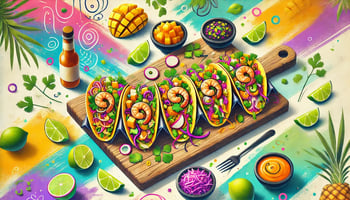It's 2024 and there are new kids on the block, leaving leaders and managers a unique challenge:...
Gen Z in the Workplace: Expectations, Stereotypes, & Management Tips
Recently, managers and CEOs have been vocal about what they see as Gen Z’s shortcomings. As the parent of a teenager as well as a founder/CEO, I like to think I’m even closer to understanding what Gen Z wants in the workplace. (I also know how to use the modern interpretation of “slay” in conversation.)
One of their greatest strengths is prioritizing work-life balance. That’s something many of us are trying to improve, so why the negative feedback? Did the introduction of “quiet quitting” poison too many opinions?
Like many generational divides, it comes down to settling in and building a connection. It wasn’t so long ago that Millennials were up against similarly unflattering stereotypes. Here are some thoughts and observations on what motivates Gen Z in the workplace and tips for appreciating one another more.
Gen Z stereotypes in the workplace (and new perspectives)
Lack of work ethic, demanding, and entitled. These are just a few complaints from people who’ve experienced problems with Gen Z in the workplace. Let’s shed some light on what may be giving others that impression and why it’s wrong in many cases.
The stereotype: “Gen Z has no attention span. Social media apps like TikTok have destroyed their ability to focus.”
The truth: This generation indeed enjoys bite-sized content. But that doesn’t mean they’re incapable of investing their attention for much longer spans.
A 2022 newsletter by McKinsey & Company breaks this down. Gen Z is more conscious about where they dedicate their attention. They like focusing on things that they feel matter. This underlines the importance of engagement in the workplace, especially as we progress into the future.
Then there’s the fact that a lot of Gen Z is interested in multitasking and problem-solving. Efficient info collection is more important to them. A range of brief sources gives them a quick 360-degree background for tackling a challenge. Speaking of which…
The stereotype: “Gen Z relies on AI for everything, they don’t learn how to do anything themselves.”
The truth: Artificial intelligence is one source Gen Z will consult in their quest for answers. However, having access to AI models during their youth has strengthened their knowledge and understanding of how it works, including its shortcomings.
This is a great quality in the modern workplace. Being able to effectively use AI in the right ways, and being more discerning about the content it produces is a huge plus for many job roles.
The stereotype: “They have no work ethic and feel like they’re owed a lot for little.”
The truth: Sounds like Millennials and Gen Z in the workplace are facing the same criticisms right out of the gate. When a new generation emerges with new expectations, it feels like a lot.
Older generations have been eased into–and in some cases, fought for–automation, flexibility, and other innovations. It’s natural for the upcoming workforce to expect they’d get to leverage efficiency and flexibility, too.
Gen Z works as much as previous generations do. Economic factors are impacting what they can get in exchange for their work, which has led to some resentment.
Many think of it like this. If purchases like homes and cars aren’t as accessible to this generation as they were to others, shouldn’t they at least be able to choose a compressed work week?
Quality of life: What motivates Gen Z in the workplace
What does Gen Z want in the workplace? Here are a few frequently-referenced factors that are highly motivating for workers born between 1997 and 2012.
- Purpose and meaning. Gen Z is more likely to engage with companies that share some of their values. They seek communities they can belong to.
- Growth opportunities. Learning, development, and growth are highly motivating for the generation that appreciates knowing they’re being invested in.
- Work-life balance. One of the biggest characteristics of Gen Z in the workplace is not letting their personal well-being fall to the wayside in pursuit of a career.
- Fair wages. A lot of companies can’t compensate above and beyond the rising costs of living, but competitive pay is highly motivating.
- Diversity, equity, and inclusion. Gen Z is a more diverse generation in many countries. They naturally expect the inclusion of people from all backgrounds.
- Technology and resources. If there’s a more efficient way to execute a task, they want it. This generation is the first to grow up with digital devices from early childhood on, so their tech savviness is a benefit to employers, too.
- Recognition and appreciation. Frequent feedback and authentic appreciation are must-haves for Gen Z.
Meeting all or most of these criteria is the surest way to get them to lock in (that’s Gen Z slang for high levels of motivation, connection, and focus).
Tips for managing Gen Z in the workplace
Gen Z’s workplace expectations align well with a culture of recognition and everything that goes with it. Here are some strategies for bridging that generational divide and getting the best out of one of the workplace’s most misunderstood demographics.
Give them a boost with real recognition
Gen Z can smell inauthenticity miles away. Instead of stock recognition program requirements, they favor consistent recognition that speaks directly to them. Be specific and genuine when pointing out challenges or offering appreciation. They’re lovers of instant feedback, so it should be timely, too.
Make room for them with flexibility
What one can offer depends on various factors, but most flexible work arrangements go over very well with workers 28 and under. Consider hybrid/remote models, compressed work weeks, flextime, and competitive amounts of PTO.
Improve non-monetary rewards
Knowing that Gen Z wants fair wages may indicate that they’re expressly money-motivated, but this isn’t the case. If they believe they’re being compensated sensibly, they often prefer rewards that are more thoughtful or experience-based. This is part of authenticity in appreciation.
You could offer increased flexibility as a reward if those options weren’t already in place. No matter the prize, introducing non-monetary reward options can increase loyalty and prolong feelings of gratitude.
Be communicative, but concise
When we discuss communicating with Gen Z, it’s not about the right slang (although it can help to know that being called a GOAT is a good thing). Clear expectations and concise explanations alleviate many misunderstandings and help them continue moving with purpose.
Show them the results
How is their work impacting the person next to them? Share data that explains how their role relates to their coworkers’ output and company results. This helps Gen Z employees forge stronger connections. It helps define their place in the community and builds confidence.
Final tip: Authentic recognition that everyone can get on board with
Gen Z issues in the workplace boil down to the usual, sometimes troublesome, adjustment period. What’s for sure is that in a few short years, they could make up as much as 30% of the workforce, so let’s get a head start on appreciating one another.
I designed HeyTaco as a tool that puts workplace happiness in employees’ hands, which is how Gen Z likes it. Peer-to-peer recognition allows teams to praise and celebrate the small stuff on their terms.
HeyTaco is easy for any generation to use, has fun, gamified elements, and increases the number of positive interactions coworkers share daily.
So go ahead—next time someone on your team "slays," make sure they know it with a taco (no cap).
Thanks for reading! 🌮
If you found this article valuable, please share it with your friends and colleagues.












